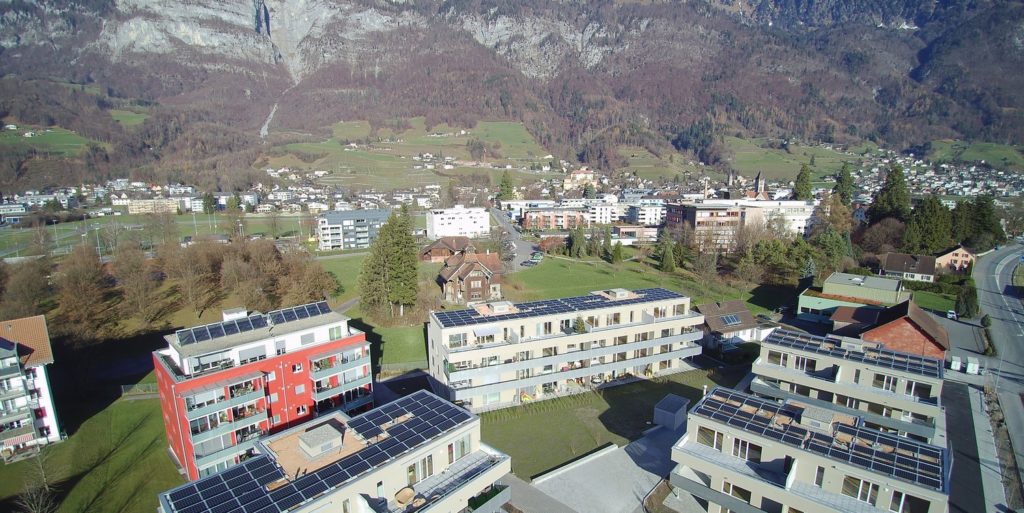From pv magazine Germany.
A blockchain-based marketplace for solar power in Walenstadt, near St. Gallen in Switzerland has had a successful start: In the first two weeks of this month, the 37 participating households and a retirement home sourced a quarter of their electricity demand from their neighbors.
On sunny days, the rate rose to 37% and well over 32% of the energy generated was traded in the neighborhood, as generators consumed just under half, with around 18% fed into the network of utility the Walenstadt Water and Electricity Company.
The ‘Quartierstrom’, supported by Switzerland’s Federal Office of Energy, is being run by several Swiss universities and companies. The goal of the one-year test run is to develop a viable concept for the local sale of solar power.
A large proportion of the participants have PV systems and those who do not produce their own solar power can purchase locally generated energy from a neighbor.
Set your power price
According to the project partners, prosumers generate higher revenue from the sale of their electricity nearby than from its injection into the grid. Consumers are reportedly also attracted to trade, as they would pay less for electricity from a neighbor than from the utility.
Trades take place directly between participants and, using the portal, producers can set a minimum price and consumers a maximum. A mini computer with an integrated electricity meter and blockchain software was installed in participating households. These blockchain nodes issue bids for the purchase or sale of solar power every 15 minutes according to price settings and calculate – according to an auction mechanism – who receives the surcharge and at what price.
“The system is stable and the market works,” said Arne Meeuw from the Bosch IoT [Internet of Things] Lab at the University of St. Gallen, which is developing the system with researchers from the Bits to Energy Lab at ETH Zurich. “We were surprised at how often the participants logged into the portal to adjust their price limits or retrieve their trading data,” Meeuw said, adding some people would query data several times a day.
This content is protected by copyright and may not be reused. If you want to cooperate with us and would like to reuse some of our content, please contact: editors@pv-magazine.com.



2 comments
By submitting this form you agree to pv magazine using your data for the purposes of publishing your comment.
Your personal data will only be disclosed or otherwise transmitted to third parties for the purposes of spam filtering or if this is necessary for technical maintenance of the website. Any other transfer to third parties will not take place unless this is justified on the basis of applicable data protection regulations or if pv magazine is legally obliged to do so.
You may revoke this consent at any time with effect for the future, in which case your personal data will be deleted immediately. Otherwise, your data will be deleted if pv magazine has processed your request or the purpose of data storage is fulfilled.
Further information on data privacy can be found in our Data Protection Policy.